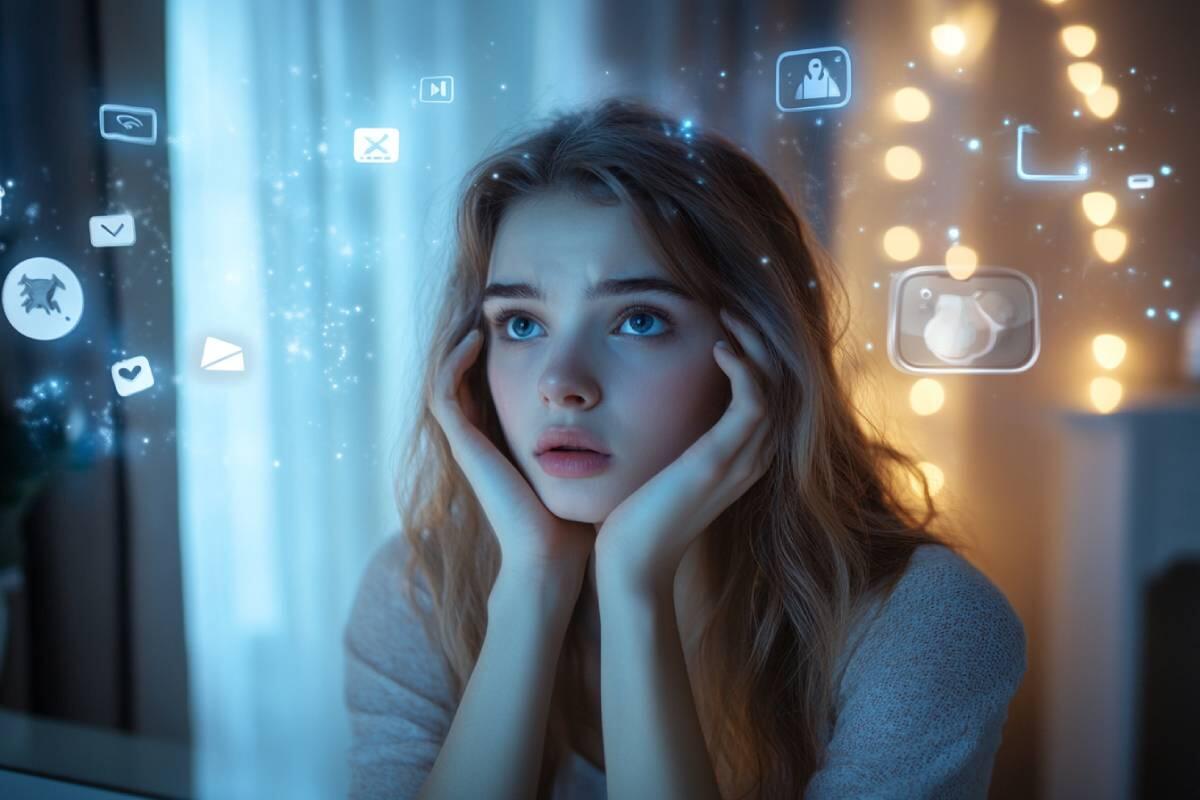Body Insecurity and Social Anxiety: When Aesthetics Interfere with Mental Health
We live in an era where body image is constantly exposed, judged, and compared. Social media, advertising, and mainstream media promote aesthetic ideals that are often unattainable, leading many individuals to develop insecurities about their appearance. This reality deeply affects how people see themselves and behave in social settings.
When dissatisfaction with one’s appearance starts interfering with social and emotional life, we may be dealing with social anxiety linked to body image. Aesthetic pressure can be silent, but its emotional impact is profound. In this article, Clinic Consultation explains how to identify the signs of this connection between appearance and mental health — and which steps can help restore emotional balance.
What Is Body Insecurity?
Definition and common causes
Body insecurity is the discomfort or dissatisfaction with one’s physical appearance, which can relate to weight, facial structure, skin texture, hair type, or other physical traits. This negative self-perception often arises from bullying, traumatic experiences, or comparisons with unrealistic beauty standards.
On social media, the flood of retouched and idealized images reinforces feelings of inadequacy. People with low self-esteem are especially vulnerable, leading to a vicious cycle of self-criticism and self-rejection.
Effects on behavior and self-esteem
People struggling with body insecurity may avoid mirrors, group photos, specific clothing, or social gatherings altogether. These behaviors are often driven by shame and fear of judgment. Over time, they become rigid patterns that limit daily functioning and joy.
Moreover, constant self-criticism erodes self-esteem and intensifies emotional suffering. At Clinic Consultation, we often see how body image issues are the root of more serious conditions, such as depression and eating disorders.
What Is Social Anxiety and How Is It Connected to Appearance?
Understanding social anxiety
Social anxiety disorder is marked by an intense fear of being judged, criticized, or rejected in social situations. Individuals with this condition tend to avoid meetings, presentations, public events, or even casual conversations due to the fear of negative evaluation.
This disorder is frequently linked to self-image. When someone feels ashamed of how they look, this emotional distress can trigger social anxiety. The fear of not measuring up physically makes them feel constantly observed and evaluated.
When appearance becomes an emotional trigger
The desire for social acceptance, combined with appearance-related worries, can become emotionally exhausting. Many people avoid public places where they fear judgment — such as gyms, beaches, or parties — which leads to isolation and worsens their anxiety.
Using filters, excessive makeup, or undergoing cosmetic procedures may help hide insecurities temporarily. However, these external fixes rarely address the emotional core of the issue. That’s why Clinic Consultation emphasizes the importance of psychological support to heal from within.
Social Media and Aesthetic Pressure
The constant comparison trap
Social media has created an environment where comparisons are inevitable. Influencers and celebrities showcase sculpted bodies and perfect lives, which distort our perception of what is normal or achievable. This idealization increases frustration and feelings of inferiority.
Even when we know that most images are edited, the psychological effect remains. Constant comparison weakens self-confidence, fueling anxiety and negative self-image.
Impact on mental health
Excessive social media use is linked to symptoms of depression, anxiety, insomnia, and eating disorders. The need for validation — through likes, comments, and followers — turns self-worth into something externally dependent.
When image becomes the core of personal value, mental health suffers. Clinic Consultation encourages mindful social media use, with a focus on mental well-being and authenticity over perfection.
When Aesthetics Become Harmful Instead of Self-Care
Warning signs to watch for
Caring for your appearance is healthy — until it turns into an obsession. One major red flag is constantly seeking cosmetic procedures, even after previously satisfying results.
It’s also concerning when the motivation behind aesthetic changes stems from extreme self-rejection or a desperate need for approval. In these cases, appearance enhancement becomes a way to mask deeper emotional wounds.
Emotional and physical risks
Frequent cosmetic interventions carry not only physical risks — such as medical complications — but also emotional ones. Persistent frustration from never achieving the “perfect look” can lead to chronic dissatisfaction and body dysmorphic disorder (BDD).
This disorder involves an obsessive focus on perceived flaws, which may be minor or even imagined. It can severely impact quality of life. At Clinic Consultation, our professionals are trained to recognize these symptoms and offer comprehensive mental health support.
Paths to Balance: Mental Health and Aesthetics
The role of psychotherapy
Psychotherapy is a key resource for addressing body insecurity and social anxiety. With guided therapy, individuals can develop self-esteem, identify emotional triggers, and improve their relationship with their bodies.
Cognitive Behavioral Therapy (CBT), in particular, has shown excellent results for these cases. Clinic Consultation offers specialized psychological care tailored to each individual’s emotional needs and goals.
Embracing the real body and conscious self-care
Learning to accept your body is a process. Mindful habits such as meditation, balanced nutrition, enjoyable physical activity, and reducing screen time can all foster self-love and resilience.
Valuing your real body — with its unique traits and imperfections — is a powerful form of resistance to imposed beauty standards. Healthy aesthetics are those that honor your individuality and promote both physical and emotional well-being.
Conclusion
Aesthetic pressure is part of modern life, but it should never become a source of suffering. The pursuit of beauty must be balanced with emotional care so that self-esteem and mental health thrive together.
If your relationship with your body is affecting your emotional or social life, it’s time to seek support. At Clinic Consultation, our team is ready to guide you toward a healthier and more compassionate view of yourself.
Do you feel that your body image is impacting your emotional or social well-being? The professionals at Clinic Consultation are here to support you with compassionate, specialized care focused on your mental and emotional health.
Schedule your appointment today at https://www.clinicconsultation.in/ and take the first step toward a healthier mindset and self-image.
